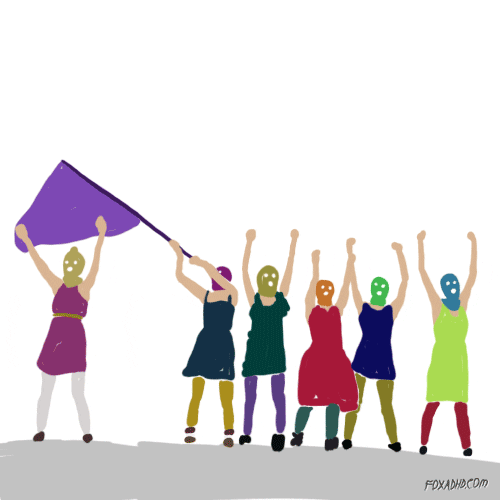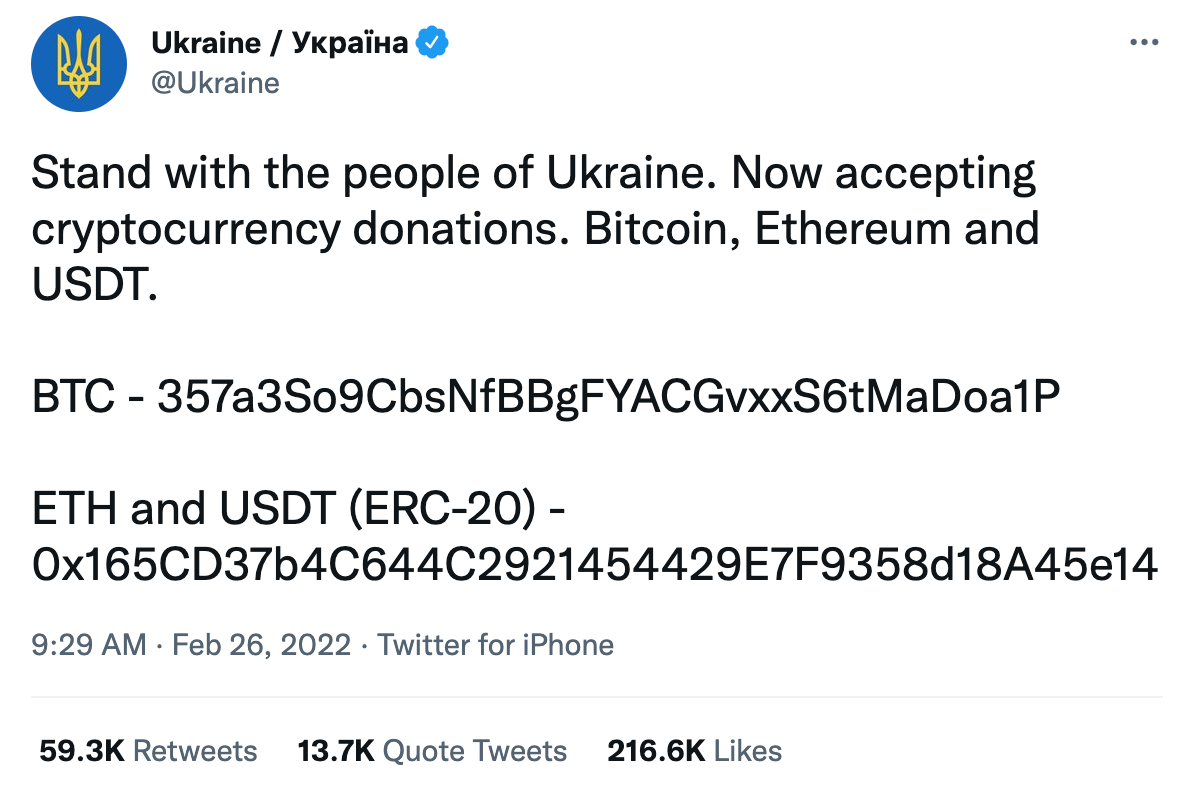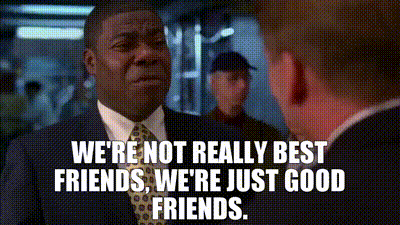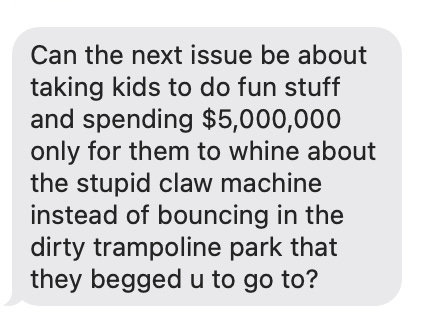DAOs are like PTAs, tokens are like carnival tickets, and why Biden caught the crypto bug
By Rebecca Ackermann
Not long ago witch Rebecca Ackermann, who often writes about tech and finance, provided a very handy breakdown of NFTs, Web3 and blockchain to keep you from feeling boxed out of the crypto conversation. She’s back with a follow up and I wanted to share it sooner rather than later since world events are changing so quickly.
*Ed update: I received some clarifying feedback on this piece from a witch who works in crypto, so please be sure to read the comments!*
A lot has happened in the world since my last crypto explainer, and that means a lot has happened in crypto too. It’s hard to keep up, but that’s why I’m here.
First off, at the beginning of Russia’s unconscionable attacks on Ukraine, the Ukrainian government tweeted out their Bitcoin, Ethereum and Tether wallet info in a plea for crypto donations. Sending crypto is like airdropping a file directly to someone’s computer (which has been used for less generous reasons in the past) only you have to type in an exact combination of 20+ letters and numbers when you do it—otherwise your coins could end up in a random wallet with no way to get them back. Take that, two-factor authentication! So with the tweeted IDs, people all over the world were able to send Ukraine more than $50 million dollars worth of cryptocurrencies, including $5 million dollars from the guy who invented the term “Web3” on the condition that Ukraine *also* start accepting his new token, DOT.
Donating to a good cause is great, but you may be asking, “Why donate crypto instead of regular money through regular channels?” Well, if you recall, there’s not a lot you can buy with crypto today (basically just NFT, or non-fungible token, art), so donating to charity is one way to move around a lot of it—and in some cases, that can be very tax deductible.
As for the DOT token guy, well, he just paid $5 million dollars for really great marketing for his crypto company—expensive, but not as much as a Super Bowl ad! You may also ask, “Why does Ukraine even want crypto?” The answer is because it’s faster than official channels and doesn’t get tied up in any red tape—because crypto is far less regulated [edited to update from “totally”] unregulated right now, unlike other kinds of international exchange.
Your next question might be, “Uh hold on, but is anyone doing this for Russia too? Are they going to use crypto to get around the sanctions?” The answer is maybe! Some of the biggest crypto companies straight up refused to shut off all Russian crypto accounts in compliance with sanctions, but they say they’ll probably freeze specific individuals. This is all very uncharted territory. But the Ukrainian government’s initial crypto call worked so well that they’re launching their own NFT collection to sell to raise more funds, so crypto will likely continue on as a character in this season of World War III.
The Ukrainian government isn’t the only one figuring out how to use crypto to direct international donations. A member of the Russian band/art collective Pussy Riot created a group called UkraineDAO to raise money for the Ukrainian military first through donations, and then through sales of an NFT image of the Ukraine flag.
What are DAOs? Remember how the Big Idea of crypto/Web3 is that people can get together and trade individually, without institutions sitting in the middle and taking a cut (although, of course, there are new crypto middlemen)? A DAO, or a Distributed Autonomous Organization, is a group digitally gathered around a focused purpose with bylaws but no central government.
Essentially, DAOs are like school PTAs: collections of people who don’t otherwise share much in common but care a lot about doing the one thing that brought them together—and often have a hard time agreeing on just how to do it. In the case of ConstitutionDAO, that singular purpose was a (failed) attempt to buy a copy of the US Constitution. For SpiceDAO, it was a (successful) bid to buy a copy of Dune and a (failed) attempt to distribute it for free—turns out they didn’t actually buy the copyright.
UkraineDAO exists to raise money for Ukraine. Just like with a PTA, anyone can donate money, but to participate and vote, you have to be a dues-paying member. Membership in a DAO requires the purchase of the DAO’s special token and some also require an extra governance token if you want to vote. DAOs are perhaps a crypto development closest to the concept’s original goal—a way to replace crowdfunding platforms like GoFundMe with collective will, which is kind of cool if they can figure out the governance issues. But of course anything cool attracts money and power—and tons of venture capital investors like Bain’s photogenic new crypto team are getting into DAOs, funding tools for them (run by middlemen) and starting their own more corporate DAOs. I would give my right arm to see a Bain-sponsored PTA but education isn’t really where the big bucks are hiding, is it?
Okay, back up. I’ve said the word “token” a lot, and not just as the last letter in NFT. Are those crypto or something else? Well, as we know, NFTs are a non-fungible kind of token, which means they’re unique and can’t be traded for other things like a currency. But there are also fungible tokens—lots and lots of them—which are cryptocurrencies but are very limited in their buying power. If we think of the Web3 world as a carnival, with different companies and DAOs offering rides and concessions, then tokens are the carnival tickets you need to have a good time. You take your real money from your real wallet and trade it for tickets at the door because you can’t get a hot dog with cash inside the carnival tent—but at the end of the night, you can’t get a hot dog at the stand down the street with carnival tickets. If you don’t spend them inside you’re stuck with useless scrip and regretting that “buy 20 tickets & get 5 free” deal.
Now, let’s take it a step further: Imagine the concession stand only accepts concession tickets and the ferris wheel only accepts ferris wheel tickets. That’s really how tokens work. In your digital wallet you need a bunch of different tokens that work on the “inside” of each group but can’t buy anything outside of it. So to participate in UkraineDAO, you need special UkraineDAO tokens (called UKRN) that can be bought with crypto like Ethereum or Bitcoin which can be bought with real money. Yes, it’s that complicated. Just take a look at this very stylish but totally bonkers UkraineDAO website!
With all this “money” flying across international borders and crypto middlemen cropping up on the Forbes list of billionaires, the US government is taking a closer look at the situation. Federal agencies have been cracking down on crypto exchanges and crypto scams for a little while now but just a couple weeks ago, Biden signed an executive order to make his government figure out a Grand Unifying Plan for dealing with crypto. Some people think this means regulators are taking crypto seriously and it’s here to stay; some say it means crypto is going to get regulated out of existence. Some think The Fed will start issuing its own cryptocurrency; some believe it’ll issue regulated digital dollars instead, which aren’t cryptocurrencies but can be transferred quickly across borders. These are all valid possibilities! And the outcome will likely determine whether we all need to get a digital wallet or can forget any of this ever happened. But right now, the crypto future is just an NFT of a Schrodinger’s cat: the only way to find out what happens next is to wait and see.
Rebecca Ackermann, a mom of one, has worked in tech for 10+ years at Google, NerdWallet and other places. She’s worked on AI for healthcare, VR for education and consumer tools for financial literacy. You can find her writing here and her Twitter here. I think her tiny food sculptures should be the next form of currency.
End credits
Thanks for reading Evil Witches, a newsletter for people who happen to be mothers who refuse to be left behind, unless it’s just easier to opt into being left behind. Feel free forward this issue to someone who would find it informative. If you haven’t yet I hope you consider becoming a paid subscriber which gets you bonus content and threads!
If you have any questions, feedback, or suggestions for the newsletter you can reply to this email or talk to other witches on Twitter. The archives live here. Here are a few old issues that you may enjoy and/or find helpful:
How to ask for a raise/promotion/better working conditions (Part 1 and Part 2)
Unfortunately, still timely: An Asian American woman tells you how she is
Thread—Yeah you might HAVE it all but you’re not DOING it all. What are you ditching?
If it makes you feel less alone to see how some spouses apparently don’t see laundry, here.
Maybe don’t make a big deal about your kid and their pal being best friends forever










Thanks again for this clear analysis, I know I really appreciate it!
Some updates from a crypto witch subscriber:
1) Crypto regs vary by country but for example in the United States all of the exchanges are complying with certain rules similar to banks.
2) Every single exchange is complying with sanctions. The sanctions do not ask them to refrain from all Russian customers, they ask them to block certain individuals which they have done. Banks are following the exact rules.
3) There is no one who thinks crypto can be used to evade sanction at any scale. Same goes for "regulating out of existence" - not going to happen either. Most wonks would say that the EO is actually proof of that.
For residents in the state of NY (where I live) all crypto transactions are regulated by the NY department of financial services and their Bit License. I work hard to develop products that comply with all regulations in each jurisdiction we serve. We have many many AML and OFAC controls in place as required by law. Working at a cryptocurrency exchange is akin to working at a bank in terms of the rules we are following.